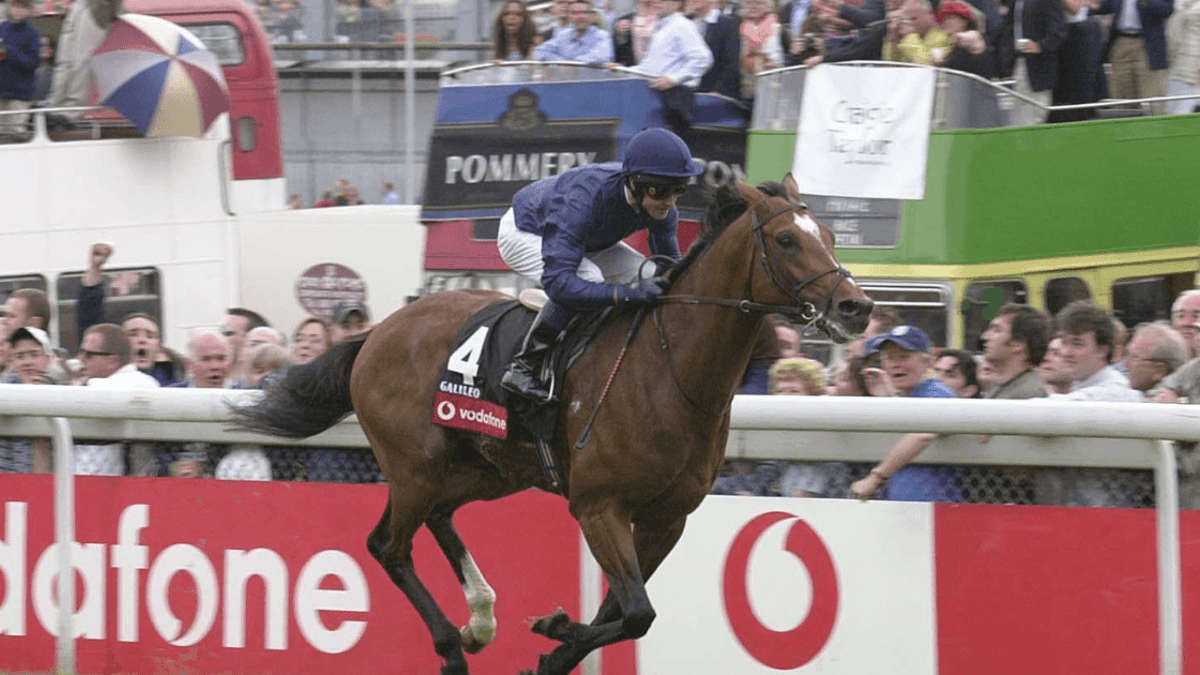Horse Racing Betting: Donn McClean’s Three Most Memorable King Georges

The King George VI and Queen Elizabeth Stakes, is one of the most prestigious and highly anticipated flat horse races in the world.
Held annually at Ascot Racecourse in England, this illustrious event has witnessed some unforgettable showdowns between racing titans over the years. In this article, we delve into three of the most memorable renewals of the King George, as captured by esteemed horse racing journalist, Donn McClean.
Among the plethora of prestigious races that he has covered, the King George holds a special place in his heart and betting sites have odds at the ready for this year's renewal.
Donn McClean, with his seasoned expertise and keen eye for detail, captures the essence of these extraordinary races, immortalizing the triumphs, surprises, and heart-pounding moments that have shaped the King George VI and Queen Elizabeth Stakes into a timeless spectacle cherished by racing enthusiasts worldwide.
Grundy v Bustino, 1975
They named the Grundy/Bustino King George the Race of the Century, and it is difficult to argue with that assessment, because this was a race that had it all. Bustino the older horse, the four-year-old, the St Leger winner of 1974, the Coronation Cup winner of 1975, taking on by the younger horse, the three-year-old, the 1975 Derby winner Grundy. And it was Dick Hern against Peter Walwyn, Joe Mercer against Pat Eddery, in a race for the ages.
It was a duel, and sport loves duels. Ali/Frazier (the fight of the century), Nicklaus/Watson (duel in the sun), Borg/McEnroe. The iconic rivalries that define the sport. The Grundy/Bustino contest was one of those, the 1975 King George.
Actually, there were 11 horses in the race, but nine of them had no chance by the time they reached the top of the home straight. And among those nine were hugely talented performers: Eclipse winner Star Appeal, dual King George winner Dahlia, Irish Oaks winner Dibidale.
Bustino’s pacemakers took them along through the early stages of the race at blistering fractions. Trainer Dick Hern knew that, if the St Leger winner Bustino was going to beat the Dewhurst winner and the Irish Guineas winner and the dual Derby winner Grundy, he was going to beat him with stamina, not with speed.
We Rank The Best Horse Racing Betting Sites
Follow Our Daily Horse Racing Tipster James Boyle
But even the pacemakers could only take them so far. They hadn’t yet reached the home turn when Joe Mercer allowed Bustino move up on the outside and move into the lead. Pat Eddery tracked him through on Bustino and moved into his slipstream as they passed the three-furlong marker and, from there, for 3/8 of a mile that took them around Ascot’s home turn and up its gruelling home run, only two horses mattered.
Bustino had a lead of about two and a half lengths when they straightened up for home. Joe Mercer asked his horse for all he had, as Pat Eddery took Grundy towards the outside and took aim. He had bridged the gap by the time the furlong pole flashed past, but Bustino was game and he battled back on the far side.
And then it was all-in. Show us all you’ve got.
The two horses went toe-to-toe for the final 200 yards, nostril to nostril. Nobody was wilting here, nobody was going home. If you were going to win it, you were going to have to dig more deeply than you had ever dug before, strain every sinew, go through the pain barrier and beyond.
In truth, they both did that, they both broke the track record, but someone had to win and someone had to lose and, in the end, it was Grundy who went home with the laurels in one of the most memorable horse races of all time, an iconic sporting contest that went beyond horse racing.
Galileo v Fantastic Light, 2001
Before Galileo, Aidan O’Brien had never won the Derby and he had never won the King George. That all changed in 2001.
Actually, in the summer of 2001, Galileo had never been beaten. Winner of his maiden on his only run at two, he had won the Ballysax Stakes and the Leopardstown Derby Trial before Epsom, and he had won the Irish Derby after Epsom.
Before the King George, however, he had never taken on his elders, but that didn’t matter to the market, and they sent him off the 1/2 favourite, in a race that ultimately boiled down to a match between the Ballydoyle horse and Fantastic Light, who represented Sheikh Mohammed’s Godolphin operation, the other powerhouse in the thoroughbred world.
It was a fascinating race to watch then, and it is a fascinating race to review now. The Godolphin horse Give The Slip took them along through the early stages of the race, with Ballydoyle horse Ice Dancer up on his outside. Galileo travelled powerfully just behind the front rank and towards the inside under Michael Kinane, with Fantastic Light and Frankie Dettori a little further back, a little further wide.
Check Out The Latest Royal Ascot Offers
We Rank The Best New Bookmakers Online
By the time they reached the home turn, Ice Dancer had faded out of it, but Galileo had moved easily into third place on the inside, saving ground, as Fantastic Light negotiated his way through traffic further out, and no better than eighth as they got to the crown of the home turn.
A small gap developed between the leader Give The Slip and the second Mutamam as they straightened up for home, and Michael Kinane had the guile and the horse to make use of it. He and Galileo had moved into the gap in an instant, before Richard Hills had the opportunity to close it again.
Once there, Kinane was able to sit for a stride or two, fill his horse’s lungs, as Fantastic Light used energy to race wide and move forward. Kinane asked his horse to pick up as they reached the two-furlong pole, with Fantastic Light closing him down and moving to his right upsides.
The chaser got close, he probably drew level at least, but Kinane hadn’t asked Galileo to dig deep at that point and, when he did, Galileo responded. He found the reserves of energy that we now know he possessed, as do the majority of his progeny – we obviously didn’t know then the magnitude of the impact that the son of Sadler’s Wells would have on the global bloodstock industry – and he forged on to win by two lengths.
Azamour, 2005
Quality in the 2005 renewal of the King George ran deep. Among the 12 runners were the Prix de l’Arc de Triomphe winner Bago, the Irish Derby winner Grey Swallow, the previous year’s King George winner Doyen, the dual Coronation Cup winner Warrsan, the Oaks winner Eswarah, and the Dubai Sheema Classic winner Phoenix Reach.
But they sent the John Oxx-trained Azamour off as favourite, and it was the St James’s Palace Stakes winner, the Irish Champion Stakes winner, the Prince of Wales’s Stakes winner, who prevailed.
Follow All Donn McClean's Racing Columns
Check Out The Best Betting Apps
With Ascot under re-construction that year, in the same way as the Prince of Wales’s Stakes was run that year at Royal Ascot at York, the King George was run at Newbury, but that didn’t matter to Azamour.
Ridden patiently by Michael Kinane, last of the 12 runners when they straightened up for home, the Aga Khan’s horse made good headway early in the home straight out in the centre of the track, hit the front on the run to the furlong marker, and stayed on strongly to win by just over a length from Norse Dancer, with the Arc winner Bago back in third.
It was a second King George for trainer John Oxx, two years after he had won the race with Alamshar, and it was a fifth for Michael Kinane, 15 years after he had won his first on Belmez.















